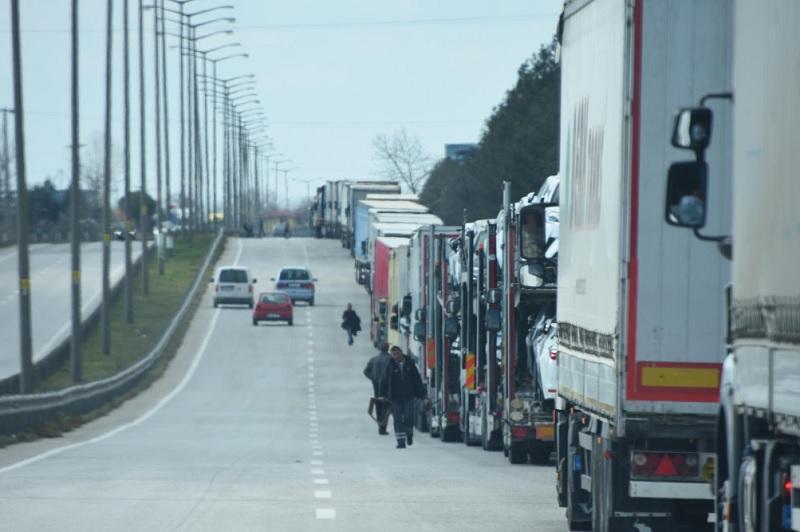
As tractor-trailers often get stuck in traffic for long hours near the border gates between Turkey and European Un-ion members Greece and Bulgaria, some companies prefer light commercial vehicles (LCVs) to carry on cross-border trade.
“The increase in orders from Europe has caused long tractor-trailer lines at the border gates. Particularly due to long tractor-trailer lines at Kapıkule and Hamzabeyli crossings, in some days it takes four days to pass by the border gates,” said Ceyhun Yüksel, Turkish company SelTrans Lojistik’s board chair.
“Exporters that do not want their goods to stay at border gates for a long time, prefer minivans to carry their goods to Europe promptly,” he told daily Dünya.
LCVs are allowed to carry export goods up to 1,200 kilograms in total with reduced red tape. LCV drivers are not obliged to show transit pass or other clearance documents.
“For urgent deliveries, usually, airways are preferred. But the hassles of finding an appropriate plane, catching a flight, loading and unloading, keeping in mind the distance of the destination airport to the recipient’s address and cus-toms procedures can cause delays,” said Yüksel.
“Whereas items can be delivered to the European countries with minivans between 48 and 72 hours,” he added.
Some Polish and Romanian courier companies usually use LCVs to ship goods from Turkey into Europe.
Procontract Mobilya Dekorasyon, a Turkish firm supplying furniture to a hotel construction of Marriot Group in Europe, also often opts for LCVs to transport materials.
“Delivery speed provided by minivans is a significant advantage in carrying out the project without disruption,” said the company’s executive Emin Yıldırım.
“The manufactured goods can be delivered to the destination point in two days,” he said.
Intermodal transportation, which involves the use of more than one mode of transport such as rail, ship and truck, is on the rise, too, amid Turkey’s increasing export volume after the pandemic-related restrictions have been eased on June 1.
“In normal conditions, we were posting annual growth of between 20 and 30 percent,” said Sarp Intermodal Deputy General Manager Yiğit Altıparmak.
“With the coronavirus, our business volume and customer number increase have more than doubled,” he said.
The company uses the ports in Istanbul, the Aegean province of İzmir and the Mediterranean province of Mersin, and railways connecting Istanbul to Greece and Bulgaria.
In a bid to deliver Turkish products to global markets in the fastest and most cost-effective way, Turkey is planning to establish foreign logistics centers in strategic regions in Africa, the Americas, Europe, Russia and the Far East, Turkish Trade Minister Ruhsar Pekcan said last month.
.